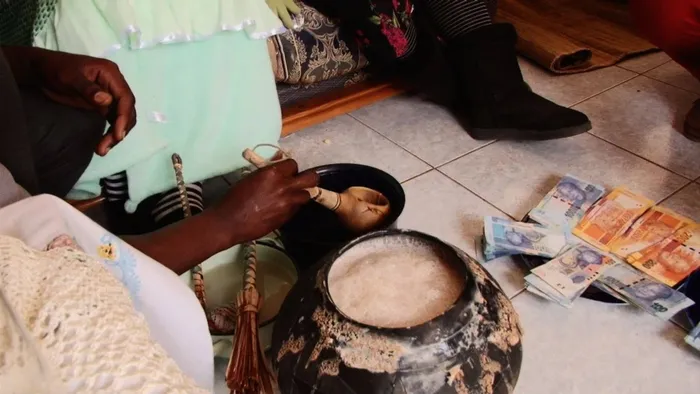Legal pitfalls of customary marriages: what South Africans need to know

Many South Africans mistakenly believe customary marriages can be ended without formal divorce proceedings. This legal misconception is leading to invalid second marriages and inheritance disputes. Old Mutual's John Manyike explains the risks and what couples need to know before tying the knot this festive season.
Image: File photo.
While celebrity breakups often make for sensational reading, they also serve as powerful reminders of the legal complexities that many South Africans overlook amid the excitement of impending nuptials.
The festive season is not only a time for family and celebration but also a period when many couples choose to head to the altar. However, I would like to warn against rushing into marriage without considering important legal details.
Many people get caught up in the excitement of the ceremony and the cultural aspects of marriage without taking the time to understand what the law actually says about their marital status. This is often where many end up in difficult situations when the relationship ends.
One of the biggest areas of confusion is around customary marriages. While couples are correct in believing that once lobola has been paid and traditional celebrations have taken place, they are legally married, many mistakenly believe that separation alone is enough to dissolve the union. This is a serious misconception.
South African law recognises customary marriages as legally binding, even if they have not been formally registered with the Department of Home Affairs. Registration is encouraged, but failure to do so does not invalidate the marriage.
This means that a couple married traditionally must still obtain a divorce order from the court to dissolve their marriage, just as they would in a civil or Western union. Simply moving apart or agreeing to end things does not terminate the legal bond in the eyes of the law.
Couples must bear in mind that a customary marriage carries the same legal weight as any other marriage. If you wish to end it, you must approach the court for a formal divorce order. Otherwise, the marriage remains in place, no matter how long the parties have been separated.
The risk is that this can lead to overlapping marriages, where one partner enters into a new relationship or marriage without legally dissolving a previous customary union.
This can have severe consequences, particularly in matters relating to inheritance, spousal benefits, or even child maintenance.
There are cases where a person believes they are lawfully married, only to discover later that their partner was still married under customary law. In the eyes of the law, the earlier marriage still stands until it has been dissolved by the court.
Earlier this year, the Pretoria High Court had to decide a dispute over a man’s estate after he died in 2024, following the revelation that he had secretly married two women. *Lerato approached the Pretoria High Court seeking recognition of her civil marriage, which had taken place in 2011, presenting her official marriage certificate as proof.
Following her husband’s death, she discovered that another woman (*Thato) also claimed to be his wife under customary law.
Thato, however, presented a lobola letter signed by both families and a village headman, showing that her customary marriage had taken place in 2004. The court then ruled that all the requirements for a valid customary marriage had been met and ruled that the man was already legally married under customary law when he entered into the civil marriage with Lerato. As a result, Lerato’s marriage to the man was deemed invalid.
With the festive season approaching, a time when weddings and family gatherings are at their peak, couples need to stay alert. Make informed decisions and get legal advice early to avoid complications down the line.
Whether entering into a civil, customary, or religious union, couples should ensure that all documentation is in order, that marital regimes (such as in or out of community of property) are properly understood, and that any prior unions have been lawfully dissolved.
Marriage is not only a personal commitment but also a legal contract with financial implications, and understanding this can save couples from years of emotional and financial hardship down the line.
* Manyike is the head of financial education at Old Mutual.
PERSONAL FINANCE